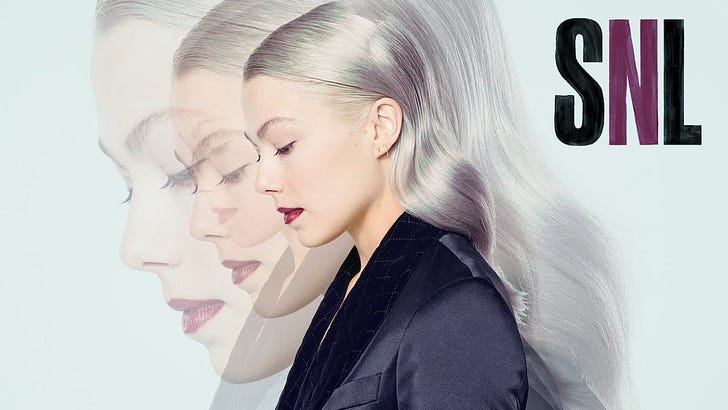I’ve gotta go, I know I know I know….
I.
My ex-boyfriend still uses my Spotify account. I can’t kick him out—I’ve changed passwords more times than I can count, I’ve forcefully selected the “forget device” option when he hijacks my listening experience with his Google Home, but so far, no dice. Three years of silence have been punctured by this ghostly choreography of closeness lost—if he’s playing Mozart, I know he’s cleaning the kitchen, or getting it dirty in a storm of gumbo preparation. If he’s playing Taylor Swift, I know he’s got a girl over.
I could be assuming, of course. That’s what he did, not what he does. I’m drawing from memory, scratching incomplete transcriptions onto paper in search of a familiar shape.
We regularly devolve into quiet, bratty battles from opposite ends of the app, insisting so intensely on our own choices that no songs can play at all. He’s started listening to Phoebe Bridgers, I’ve noticed, often enough that certain tracks now appear in my “On Repeat” playlist. “Motion Sickness”, “Moon Song”—plaintive, rending shit that was hot five years ago.
When we got back together after our first split in 2019, he would shut me up by accusing me of robbery; he couldn’t listen to music anymore because of me, he said. It was too painful. In 2025, he’s blasting breakup songs on my dime. Lately, I let him.
As I type, the somber chords of Bridgers’ “'I Know The End“ flood his apartment in Crown Heights. It occurs to me that someone else might have broken his heart by now; it’s been that long. Maybe she’s young and stylish and completely in the wrong. Maybe he didn’t yell, and maybe he drinks less, and maybe the pain he feels is the righteous, unsullied kind, a hundred-proof virtue that burns on the way down. Maybe there is no girl, and our collective political collapse has restored his need for different, more beautiful noise.
Then again, maybe he’s doing okay; he could simply enjoy dated indie pop. I have no idea.
Friends suggest that I cancel my Spotify account to spite him. I won’t. He can have this final, stupid thing.
Bridgers did not invent the lyrical folk-list, a form of musical scene-setting that rejects coherence in favor of description, but she did brand in a distinctly sardonic form, perfectly suited for the scroll-scourged hyperreality of her zillennial fanbase. Her music mimics the emotional abstraction of our post-pandemic milieu—droning, thematically staccato, eager to locate meaning in performative depression.
Windows down, scream along
To some America First rap country song
A slaughterhouse, an outlet mall
Slot machines, fear of God
It’s a collagist’s storytelling modality, poetry for people who don’t yet understand that they don’t like poetry. This model informs much of contemporary creative nonfiction, too, and gives writers carte blanche to abandon structure and context for meandering, unincorporated blocks of text, introduced by Roman numerals if they’re particularly lazy.
II.
As of today, Mom has been dead for two years. I’m not going to use the word “anniversary”. So much has happened. She’d be proud of me, I think, and sad for our country, although she’d never allow that sadness to poison the careful elegance of everyday life. I wrote a book that she can’t read, and now smart people ask my opinion on big ideas, like Censorship and The Internet At Large. I found micro-fame online by trafficking in certainty, using a deep voice and textual precedent to ground my thoughts in something heavier than hunches, and now, over Zoom or in the green room of Joe’s Pub, folks with by-lines and nice degrees ask me what the fuck we should do about the technocratic coup that’s happening in Washington.
I don’t know. I can concatenate my ass off, I can compare and contrast until the cows come home, I can paint a picture with words or songs or big swathes of color, but I don’t know, and I’ll never know, and I reject knowing as a tonic against terror. I read, I watch, I act as best I can, but I don’t know, and I don’t think you do, either. Confusion has become our lingua franca, and diluting devastation into soundbites seems less and less productive by the moment. I refuse to understand, not because I want to insulate myself in ignorance, but because understanding belies the finality of authorship, the smugness of a problem solved.
Maybe I’ll write myself a lyrical folk-list so I can world-build in watermarked fragments. Maybe I’ll bullshit about joy as resistance before blowing too much money on designer perfume. Maybe I’ll come up with a new kind of woman to be and sketch her in folded sections, playing a glorified game of exquisite corpse with my own future. Her heart will be hidden from her head, her hands will have never touched another person’s. Maybe I’ll craft her a long prehensile tail so she can hold more marking instruments—a quill, a vape, a gun, an iPhone. That way, she won’t lose as much.
“I Know The End” is about an apocalyptic billboard Bridgers saw on one of her many tours around Europe, or maybe it’s about her dad, or quarantine, or falling out of love, or growing up. She’s not a didactic singer, preferring to stalk the perimeter of belief shrouded in cryptic observations. In 2020, her stage costume of choice was an oversized skeleton onesie, a Party City memento mori for the TikTok set. For Bridgers, death is a funny, scary inevitability, and her winking awareness never manifests as dogma. She recognizes that something is over, but bears no artistic responsibility for the finale. I’m not sure if that’s cowardly or brilliant.
Art isn’t enough, is it? The exquisite corpse of creativity won’t save us. I’m not sure what will.
I don’t know, after all.
Thank you for reading and subscribing.
Until next time,
-Baubo




